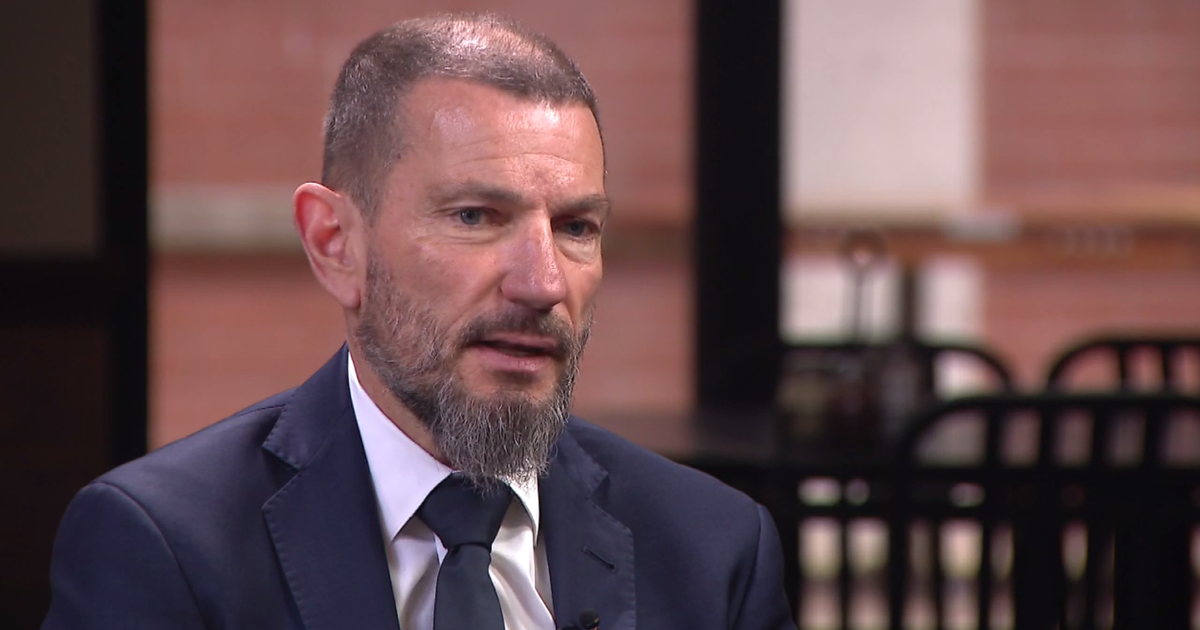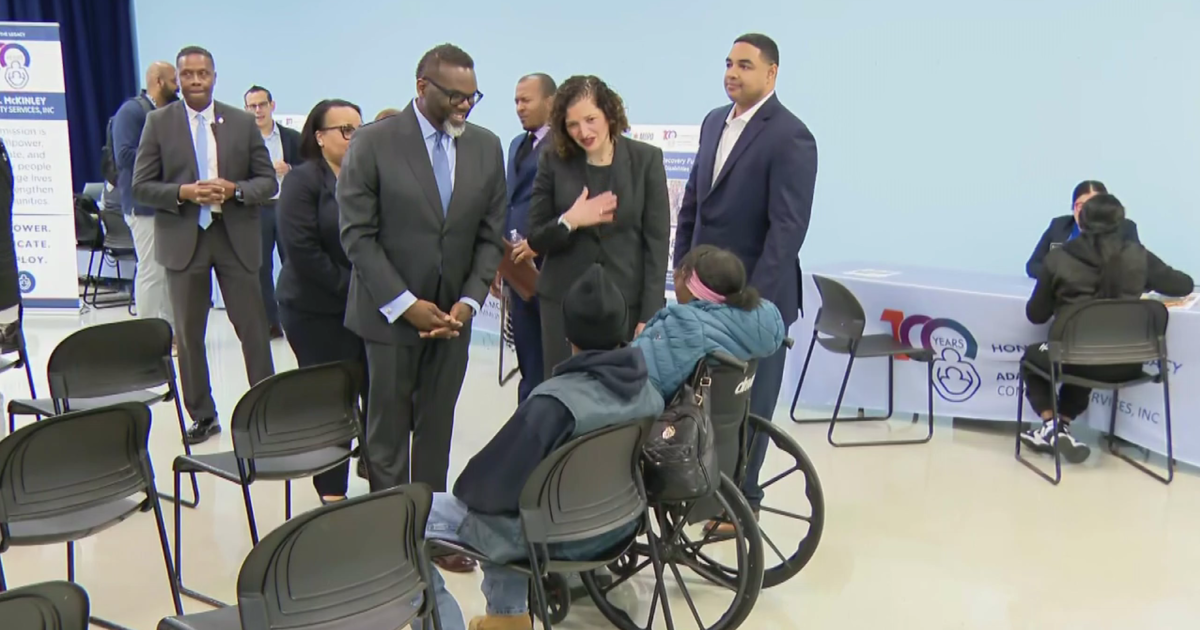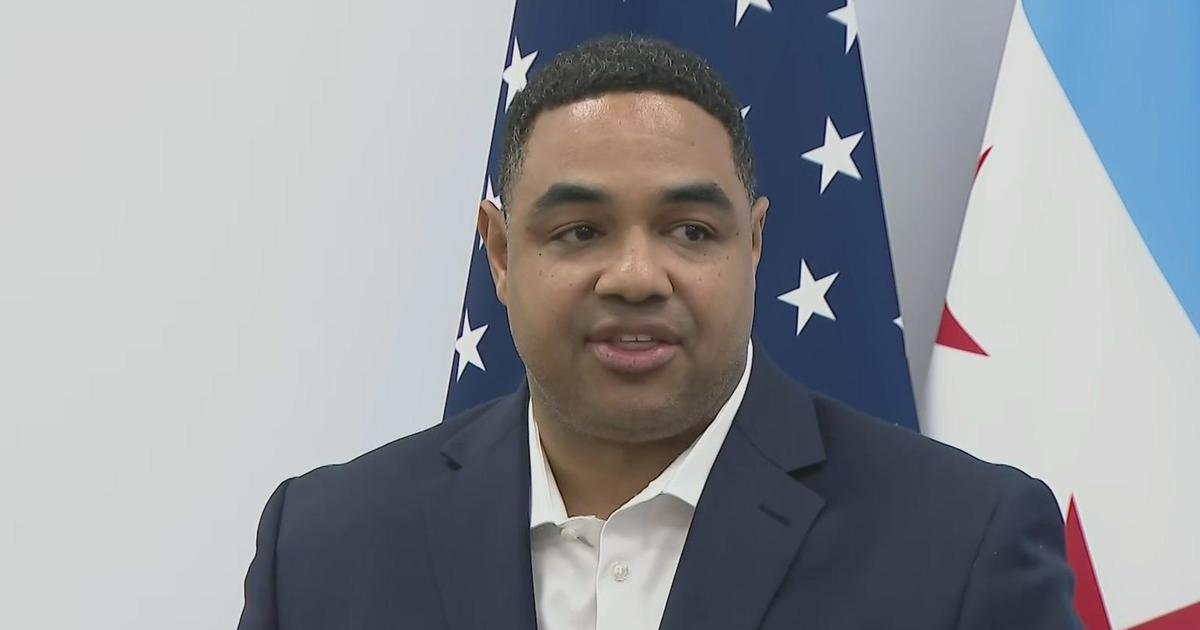Pastor, Community Activist Urge Mayor To Rethink Tax Hike For Rideshare Services
CHICAGO (CBS) -- A pastor and a community activist are asking Mayor Lori Lightfoot to reconsider her plan to increase taxes on ridesharing services in Chicago, saying the plan would have an unintended negative impact on minority communities on the South and West sides.
"This tax will burden our community. Neighborhoods that simply have been burdened enough will be burdened even more by a tax like this," community activist Tim Jones said Tuesday at City Hall.
The mayor's office has said her $40 million plan for increased ride-hailing taxes is aimed at relieving congestion downtown, where nearly all ride-hailing trips begin or end.
Lightfoot has proposed increasing the tax on rideshare services to cut down on traffic congestion downtown, by significantly increasing the fees for rides downtown. A rideshare trip that starts or ends downtown would rise from 72 cents to $3. The taxes on a shared ride downtown would rise from 72 cents per trip to $1.25 per trip.
The increased downtown fees would apply between 6 a.m. to 10 p.m., when traffic is worst. The rest of the time, trips downtown would have the same fees as the rest of the city.
Solo rides that neither start nor end downtown would rise from 72 cents per trip to $1.25.
Trips to and from O'Hare and Midway Airports, Navy Pier, or McCormick Place would continue to be assessed a flat $5 tax.
The only ride-share customers who would see their fees drop would be riders who share a trip that neither starts nor ends in the downtown area; those shared rides would be taxed 65 cents a trip, down from 72 cents.
Jones noted, although the largest increase hits solo trips that begin or end downtown, even people who use ride-hailing services only in the neighborhoods would see a tax increase of nearly 75%.
"It goes beyond just impacting the Central Business District to impacting homes and families who really need to hold their money in really close and tight-knit," he said.
Rev. Walter Turner, pastor of New Spiritual Life Missionary Baptist Church, said many people who live on the South and West sides rely on rideshare services to get to and from work, because they can't get taxis
"In our communities, we cannot get a cab. Taxis will not come in Englewood. Taxis will not come in Austin. Taxis will not come in South Shore. They will not come in our areas," he said.
Turner also said people in those same neighborhoods often feel unsafe standing at a bus stop to wait for a bus, because of the high crime in those communities, so rideshare services have been "a blessing."
The pastor said there are other ways for the Lightfoot administration to reduce congestion and raise revenue without adversely impacting black and brown communities.
"You're not taxing taxis. You're not taxing public transportation. You're not taxing trucks who cause major congestion in the downtown area. Let's look at doing this across the board for everyone, and to make it right. It's about making sure that we do things the right and the fair way," he said.
Jones and Turner also said many people who rely on ridesharing services to get to and from work don't feel comfortable sharing a ride with a stranger, so would be harder hit by the mayor's tax plan, which raises taxes more on solo trips.
The mayor's rideshare tax plan must be approved by the City Council as part of her 2020 budget plan. Aldermen were expected to question officials at the Department of Business Affairs and Consumer Protection about the mayor's tax plan at budget hearings at City Hall on Tuesday.
In a statement, the city said:
"The notion that the City's congestion plan negatively impacts low-income residents from the South and West Sides is categorically false — both on the numbers and conclusion. The facts remain that 9 out of 10 trips from the majority of Chicago's South and West Side communities are to another neighborhood, not downtown. Based on the ride-hailing companies' own data, the majority of these trips are overwhelmingly shared trips, meaning riders will see a decrease in their taxes as part of this policy. This tax is applied to the ride-hailing companies – not the drivers or passengers – and it is the companies decision alone to pass the fee onto the rider."



